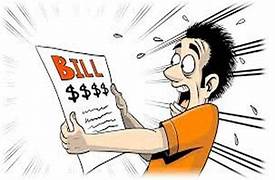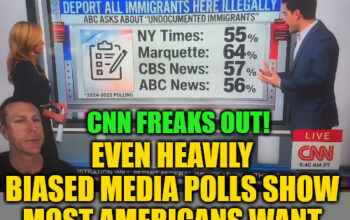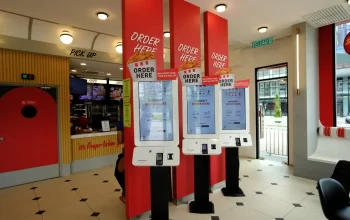Good news—even the ultra Progressives are tired of waste in government and high taxes.
““I think that an atmosphere where the city can work with businesses to achieve common goals and guarantee the longevity of businesses in the city is a much better approach than the approach of ‘just tax ‘em where you can,’” said Salazar, referencing a recent agreement to collect $900,000 annually from the city’s card room, Artichoke Joe’s.
He also questioned revenue projections, and said work required to collect the tax might not be worth the trouble. He said the city’s estimate, based on the past five years of property sales, included an “anomaly” year, 2019, that if removed would bring the yearly average closer to $500,000.
The City does not even know how little money will be collected—and at what cost to homeowners, property owners and the cost of collection. Another reason to say NO to all bond measures and tax increases—government is incompetent.
Opposition solidifies for new San Bruno tax

Council divide on placing measure on November ballot widens, adequate support unlikely
Corey Browning Daily Journal, 7/19/22
A proposed ballot measure to establish a tax on commercial property transfers in San Bruno appears to not have adequate council support to make it to voters this November, with Mayor Rico Medina and Councilmember Michael Salazar reiterating concerns this week for the measure proposed as a way for the city to boost insufficient revenue.
At least four of the five members of the council will need to approve the measure during a vote scheduled for Aug. 3 for it to appear on the ballot, where it would require 50% or greater voter approval. The tax would target commercial properties and residential buildings with five or more units, adding a 1% fee on the sale price, something the city estimated would generate $1.1 million annually.
Vice Mayor Linda Mason and councilmembers Tom Hamilton and Marty Medina over the course of multiple public discussions on the topic have been staunch supporters, pointing to the city’s long-standing struggle to adequately fund services, along with major infrastructure needs identified over the next 20 year, at least $310 million of which there are currently no plans for how to address.
“Is this tax going to fund all that? Of course not, but we have to chip away at it,” Hamilton said.
But after discussion on the item during a meeting Tuesday, Rico Medina said he still had concerns, and Salazar laid out several reasons for his opposition.
“I think that an atmosphere where the city can work with businesses to achieve common goals and guarantee the longevity of businesses in the city is a much better approach than the approach of ‘just tax ‘em where you can,’” said Salazar, referencing a recent agreement to collect $900,000 annually from the city’s card room, Artichoke Joe’s.
He also questioned revenue projections, and said work required to collect the tax might not be worth the trouble. He said the city’s estimate, based on the past five years of property sales, included an “anomaly” year, 2019, that if removed would bring the yearly average closer to $500,000.
Additionally, a key sticking point for both him and Medina has been that the new tax will require the city to move away from its current general law status — in which the city’s “municipal affairs“ are governed by state law — to instead become a charter city. Charter cities replace general law rules with a charter document the city would need to adopt.
The charter would allow the city to set its own rules (within the state Constitution) regarding some tax measures, certain land use, aspects of local elections and contracting — items within the loosely defined municipal affairs umbrella. Other than the tax measure, however, the charter proposal would entirely retain the state’s “general laws” by which the city is currently abiding.
“This is wanting to change the form of government, in some respect, in order to bring forward a tax,” Rico Medina said. “The words matter to me, and what things would get modified within a charter do matter and that’s what I’m still looking at.”
Salazar added that though the measure would likely pass if put on the ballot, he felt the process had not been transparent enough and voters lacked sufficient information to make an informed decision.
“It’s our duty to educate our constituents and let them know the impact of potential votes,” he said. “I don’t think that the arguments that are being put out there are balanced.”
Hamilton countered that the process, started earlier this year, had been “all out in the open,” and suggested that if there was an understanding that voters supported the measure, it was the council’s duty to move the item forward.
A poll commissioned earlier in the year by the city of 446 “likely voters” found 55.4% of respondents were in favor.
“I’ve been reached out to by several people on this,” Hamilton added. “Every single person who has opposed it has been a commercial Realtor, so that tells me something as well in terms of who we’re trying to benefit.”
The council this year also explored another measure to raise funds, a $124 million bond that would also have needed voter approval. Though it had wider council support, the item was abandoned after a poll found it would likely fail at the ballot.
“There is no silver bullet, there is no gold mine hidden in City Hall,” Marty Medina said. “It takes many different sources, and that’s why I support this [tax].”
If adopted, San Bruno would join Redwood City and San Mateo as the other two charter cities in the county. Redwood City doesn’t have a property transfer tax while San Mateo levies a 0.5% rate on commercial and residential sales — and voters there will be asked to approve an increased rate for sales above $10 million this year.
Other nearby charter cities include Palo Alto, Mountain View, Petaluma, San Francisco and San Jose.



